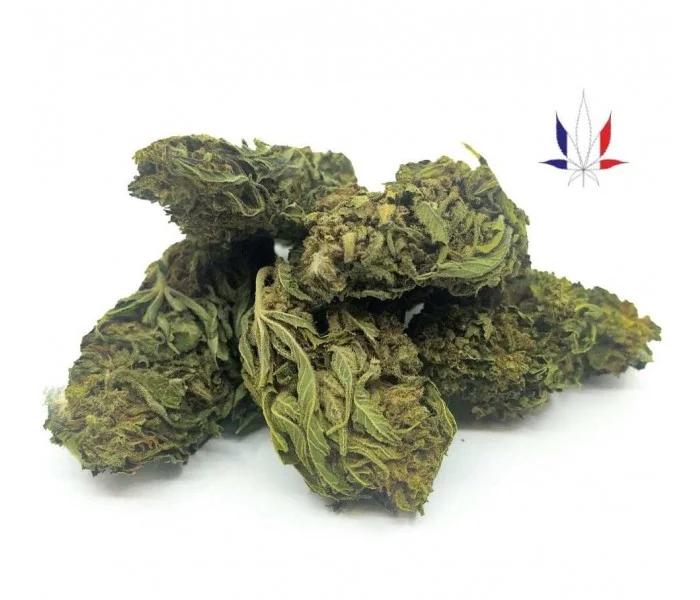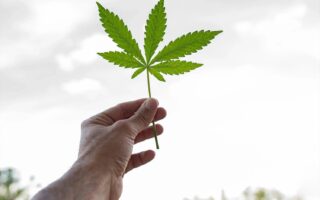Title: The Other Side of the Leaf: Unveiling the Hidden Dangers of Cannabis
As society gradually shifts its perception of cannabis from a taboo substance to a mainstream remedy, the conversation around its use has become increasingly nuanced. While many tout the benefits of marijuana for medicinal and recreational purposes, it is essential to peel back the layers and examine the potential risks associated with its consumption. From the impact on mental health and cognitive function to legal implications and social consequences, the narrative surrounding cannabis is not as straightforward as it may seem. In this article, we delve into the various dimensions of why weed can be detrimental, exploring the evidence and insights that reveal the complexities of this multifaceted plant. Whether you are a seasoned user, a curious newcomer, or someone concerned about its proliferation, understanding the darker side of cannabis is crucial for informed decision-making and a broader discussion about public health.
Table of Contents
- Understanding the Cognitive Impacts of Marijuana Use
- Exploring Long-Term Health Risks Associated with Cannabis
- Navigating the Social and Emotional Consequences of Weed
- Strategies for Responsible Use and Harm Reduction
- Q&A
- To Wrap It Up
Understanding the Cognitive Impacts of Marijuana Use
When examining the effects of marijuana on cognitive function, it’s essential to recognize that the drug can influence various mental processes. Short-term marijuana use may impair attention, memory, and learning capabilities. Users often report difficulties in concentrating and retaining information, making everyday tasks more challenging. Regular use, particularly in adolescents whose brains are still developing, can lead to significant alterations in cognitive abilities, potentially impacting academic performance and decision-making skills.
Though some advocate for marijuana’s medical benefits, the long-term cognitive impacts remain a cause for concern. Over time, persistent use may exacerbate issues such as anxiety and depression, which can further impair cognitive function. Emerging research indicates that chronic users may experience difficulties in areas such as:
- Executive Functioning: Challenges in planning, organization, and multitasking.
- Learning and Memory: Decreased ability to absorb new information and recall learned material.
- Problem Solving: Impaired capacity to navigate complex situations or tasks effectively.
To illustrate, a study comparing cognitive test scores among users and non-users revealed notable differences in performance:
| User Type | Average Test Score (out of 100) |
|---|---|
| Non-Users | 78 |
| Occasional Users | 71 |
| Regular Users | 65 |
This data emphasizes the potential cognitive challenges faced by consistent users compared to their non-user counterparts, illuminating an area of concern for individuals contemplating their use of marijuana.
Exploring Long-Term Health Risks Associated with Cannabis
While many users may tout the benefits of cannabis, it’s important to consider the potential long-term health risks associated with its use. Regular consumption has been linked to various physical and psychological challenges that could manifest over time. Chronic cannabis use may impair lung function, similar to tobacco smoking, as the inhalation of combusted plant material introduces harmful toxins into the respiratory system. Additionally, some individuals may experience cognitive decline, affecting memory and learning capabilities, particularly in adolescents whose brains are still developing.
The psychological impact of prolonged cannabis use can also be troubling. Research suggests an increased risk of anxiety disorders, depression, and even psychosis in susceptible individuals. Moreover, as tolerance builds, users might find themselves requiring higher doses, leading to potential dependency. To further illustrate the risks, consider the following table that outlines key long-term health implications:
| Health Risk | Description |
|---|---|
| Lung Damage | Similar to tobacco, may lead to chronic bronchitis and respiratory issues. |
| Cognitive Impairment | Can affect short-term memory and learning abilities, especially in young users. |
| Psychiatric Disorders | Increased risk of anxiety, depression, and potential psychotic episodes. |
| Dependency | Regular use can lead to tolerance and withdrawal symptoms upon cessation. |
Navigating the Social and Emotional Consequences of Weed
The use of weed can lead to a variety of social challenges that often go unnoticed. Many users report experiencing a sense of isolation or disconnection from their peers as a result of their habit. This is often exacerbated by the differences in attitudes toward cannabis consumption, which can create rifts in friendships. Users may feel misunderstood or judged, leading to social anxiety. Furthermore, the unpredictable effects of cannabis can alter a person’s behavior, potentially causing misunderstandings and conflicts in their relationships.
Emotionally, the consequences can be just as profound. While some may initially seek out weed for relaxation or temporary relief from stress, regular use can ultimately contribute to heightened feelings of anxiety and depression. It can also impair emotional regulation, making it difficult for individuals to cope with everyday stresses effectively. As mental health deteriorates, an individual might withdraw from social situations, creating a cycle of isolation and emotional struggle. Key emotional impacts of weed use include:
- Heightened anxiety: Increased paranoia or worry about social interactions.
- Dependency issues: Relying on cannabis to manage emotions can lead to greater emotional instability.
- Reduced motivation: Decreased interest in engaging with friends and family due to lethargy or apathy.
Strategies for Responsible Use and Harm Reduction
Understanding the potential risks of cannabis consumption is crucial for ensuring a balanced approach. Engaging in responsible use can mitigate harmful effects while still allowing individuals to derive some benefits. Here are practical strategies that can be adopted:
- Educate Yourself: Knowledge is power. Familiarize yourself with the different strains and their effects on mood, cognition, and physical health.
- Set Limits: Establish personal limits on frequency and quantity of use to maintain control and reduce dependence.
- Mindful Consumption: Pay attention to how cannabis affects you. Are you using it to cope with stress, or is it part of your social routine? Self-awareness can guide healthier habits.
- Choose Quality Over Quantity: Opt for products with clear labeling and third-party testing to avoid contaminants and unknown additives that could pose additional health risks.
- Mix with Alternatives: Consider integrating other approaches like meditation or exercise for relaxation and enjoyment instead of solely relying on cannabis.
It’s equally important to recognize potential harm reduction practices that may complement responsible use. By implementing these strategies, users can create a safer environment for both themselves and their community:
| Harm Reduction Practices | Description |
|---|---|
| Safe Spaces | Use cannabis in environments free from stressors or peer pressure, promoting a more positive experience. |
| Harm Awareness | Stay informed about the signs of overconsumption and be prepared to seek help if needed. |
| Communication | Discuss experiences openly with friends or support groups, sharing knowledge and reducing stigma. |
Q&A
Q&A: Understanding the Concerns Around Cannabis Use
Q1: What are some common reasons people believe weed is bad for you?
A1: Some individuals express concerns about cannabis primarily due to its potential to impact mental health. Research suggests that heavy or frequent use can be associated with anxiety, depression, and increased risk of psychosis, particularly in individuals predisposed to such conditions. Additionally, there are worries regarding cognitive impairments, especially in adolescents whose brains are still developing.
Q2: How does marijuana affect cognitive function?
A2: Cannabis can impair attention, memory, and learning. THC, the psychoactive compound in marijuana, interacts with receptors in the brain, which can impact short-term memory and hinder the ability to concentrate. This may not only affect daily tasks but can also have long-term implications for educational and professional success.
Q3: Does using weed lead to addiction?
A3: Yes, while cannabis may not be as physically addictive as substances like nicotine or opioids, it can still lead to what experts call cannabis use disorder. Approximately 9% of users may develop a dependence, and this risk increases to about 17% for those who start using at a younger age. Withdrawal symptoms, such as irritability and insomnia, can occur when stopping after prolonged use.
Q4: Are there physical health risks associated with smoking weed?
A4: Smoking cannabis can lead to respiratory issues similar to those experienced by tobacco smokers. Inhaling any kind of smoke can damage lung tissue and cause chronic bronchitis. Moreover, investigators are exploring potential links between long-term cannabis use and heart conditions, especially considering the increased heart rate and changes in blood pressure that can accompany consumption.
Q5: What about the impact of marijuana on driving and safety?
A5: Cannabis can significantly impair motor coordination and reaction times, making activities like driving dangerous. Studies indicate that using marijuana increases the risk of being involved in a car accident. Even in small quantities, it can affect judgment and concentration, leading to a higher likelihood of accidents.
Q6: Are there potential societal concerns related to cannabis use?
A6: Beyond individual health, widespread cannabis use can have societal implications. Normalizing marijuana could affect work productivity and public safety. Additionally, while legalization efforts often address issues such as criminal justice reform, there are still concerns about underage access and the marketing of cannabis products.
Q7: Is there any particular demographic more at risk?
A7: Adolescents and young adults are generally recognized as the demographic at the highest risk, both for developing mental health issues and for cognitive impairments. However, those with a family history of mental illness or substance abuse may also be particularly vulnerable to the adverse effects of cannabis use, irrespective of age.
Q8: Can marijuana have any beneficial effects?
A8: While this Q&A focuses on the concerns surrounding cannabis, it’s important to acknowledge its potential medicinal benefits. Cannabis has been reported to relieve chronic pain, reduce nausea from chemotherapy, and stimulate appetite in patients with AIDS, among other therapeutic uses. The conversation about cannabis is complex, requiring a balance between awareness of risks and understanding its possible benefits.
Q9: What’s the bottom line when it comes to weed?
A9: Like many substances, cannabis carries both risks and benefits. Engaging in informed and responsible use, particularly being aware of personal health factors and legal implications, is crucial. Continued research will enhance our understanding, driving conversations about how to safely integrate cannabis into society without compromising health and safety.
To Wrap It Up
while the discussion around cannabis often ignites passionate debates, it’s essential to approach the topic with a balanced perspective. The potential risks associated with weed—such as impaired cognitive function, mental health implications, and dependency issues—serve as important considerations for both casual users and those contemplating its use. As we navigate the evolving landscape of cannabis legalization and societal acceptance, remaining informed and cautious is key. By understanding the potential drawbacks and making educated choices, individuals can navigate their relationship with cannabis more effectively. Ultimately, knowledge empowers us to engage in healthier discussions about not only weed but also our overall well-being.



